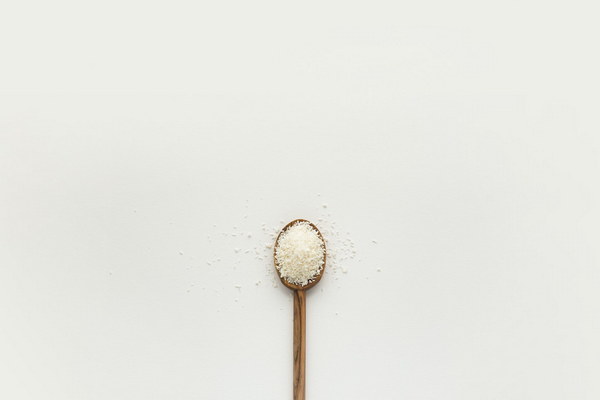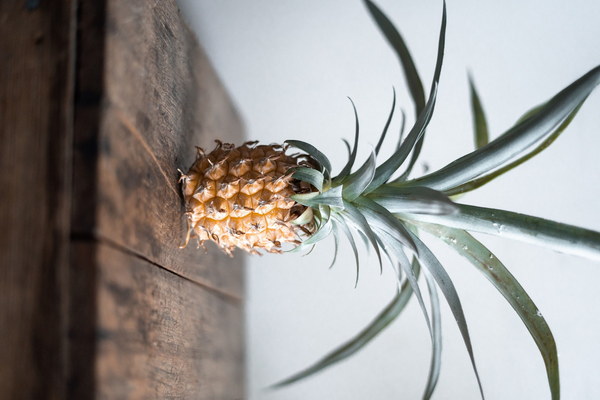Exploring Herbs for Nourishing Lung Yin A Comprehensive Guide
Lung Yin, or lung yin deficiency, is a common condition in traditional Chinese medicine (TCM) that involves a deficiency of yin in the lung system. This condition often manifests as symptoms such as dry cough, dry throat, and excessive thirst. To address this imbalance, TCM practitioners often recommend a variety of herbs known for nourishing lung yin. In this article, we will explore the concept of lung yin and delve into the herbs that can help nourish and balance this important aspect of health.
Understanding Lung Yin Deficiency
In TCM, the concept of yin and yang represents the complementary and opposing forces that maintain balance within the body. Yin is associated with cool, moist, and inward characteristics, while yang is associated with warmth, dryness, and outward characteristics. Lung yin refers to the yin aspect of the lung system, which provides moisture, nourishment, and protection for the respiratory tract.
When lung yin is deficient, the body lacks the necessary moisture to maintain respiratory health. This deficiency can lead to various symptoms, such as:
1. Dry cough: A persistent cough that produces little or no phlegm, often worsened by dry air or heat.
2. Dry throat: A feeling of dryness or scratchiness in the throat, which may be accompanied by a sore throat.
3. Excessive thirst: A persistent need for fluids, often accompanied by a dry mouth.
4. Weakness: General fatigue and weakness, especially in the upper body.
5. Restless sleep: Difficulty falling asleep or staying asleep, often accompanied by night sweats.
Herbs for Nourishing Lung Yin
To address lung yin deficiency, TCM practitioners recommend a variety of herbs that have cooling, moistening, and nourishing properties. Here are some commonly used herbs for nourishing lung yin:
1. Fleeceflower (Tang Kuei, Angelica sinensis): This herb is well-known for its ability to nourish blood and yin, making it a popular choice for treating lung yin deficiency. It can help alleviate symptoms such as dry cough, dry throat, and night sweats.
2. Peony Root (Mudanpi, Paeonia lactiflora): Peony root is another herb that is often used to nourish lung yin. It has cooling and moistening properties, making it effective for treating dry cough, sore throat, and excessive thirst.
3. Ophiopogon Root (Shenqu, Ophiopogon japonicus): This herb is known for its cooling, nourishing, and moistening properties. It can help alleviate dry cough, dry throat, and excessive thirst, making it a valuable herb for lung yin deficiency.
4. Semen Epimedii (Xianlingpi, Epimedii seu Cuscutae semen): Semen Epimedii is often used to nourish kidney yin, but it also has a cooling and nourishing effect on lung yin. It can help alleviate symptoms such as dry cough, sore throat, and night sweats.

5. Adenophora Root (Xu Duan, Adenophora stricta): This herb is known for its ability to nourish lung yin and relieve cough. It is particularly effective for treating dry cough and dry throat.
Using Herbs for Nourishing Lung Yin
It's important to note that while these herbs can be beneficial for nourishing lung yin, they should be used under the guidance of a qualified TCM practitioner. The practitioner will consider your specific constitution, symptoms, and overall health to determine the most appropriate herbal formula for your needs.
Herbal formulas may include a combination of the above-mentioned herbs, along with other herbs that are tailored to address your specific symptoms. In some cases, lifestyle changes, such as avoiding dry or polluted environments, staying hydrated, and practicing stress-reducing techniques, may also be recommended.
In conclusion, nourishing lung yin is an essential aspect of maintaining respiratory health in TCM. By understanding the concept of lung yin deficiency and exploring the herbs that can help nourish this important aspect of the body, you can take steps to improve your overall well-being and alleviate symptoms related to lung yin deficiency.









